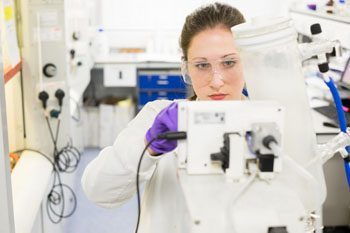Study Identifies Patient Susceptibility to Toxic Radiotherapy Side Effects
By MedImaging International staff writers
Posted on 01 Aug 2016
Currently radiotherapy treatments use very low doses of radiation in order to minimize the risk of side effects for all patients, but this can also reduce the effectiveness of the radiotherapy treatment. Approximately 1.1 million men worldwide undergo radiotherapy after being diagnosed with prostate cancer. Between 10% and 50% of these patients suffer from side effects that can include long-term urination problems or rectal bleeding.Posted on 01 Aug 2016
Researchers at the University of Manchester (Manchester, UK) have found that two gene variants are linked to the increased risk side effects after radiotherapy. The study included 1,500 prostate cancer patients. Four centers in North America and in Europe carried out the genetic profiling on 1,564 prostate cancer patients, and investigated the genetic variants of Single Nucleotide Polymorphisms (SNPs) in the patients’ DNA.

Image: Researchers have found evidence that indicates why some prostate cancer patients are more at risk of side effects from radiotherapy treatment than others (Photo courtesy of The University of Manchester).
The results showed that by combining radiotherapy cohorts and performing larger studies, it should be possible to develop a test that could predict the risk of radiotherapy side effects for prostate cancer patients.
Research leader Catharine West, professor of Radiation Biology, University of Manchester Institute of Cancer Sciences, said, "The first studies into SNPs were smaller. We needed to show we could combine them to increase the number of patients investigated and improve our ability to identify genetic variants. Centers give radiotherapy in different ways and we needed to show this variability was not a problem. There are currently more than 32 million people alive five years after having cancer, so the side effects of their treatment are an important issue for them. If we can develop a test that means people can reduce the risk of these problems that will be of huge benefit to this group."
Related Links:
University of Manchester














